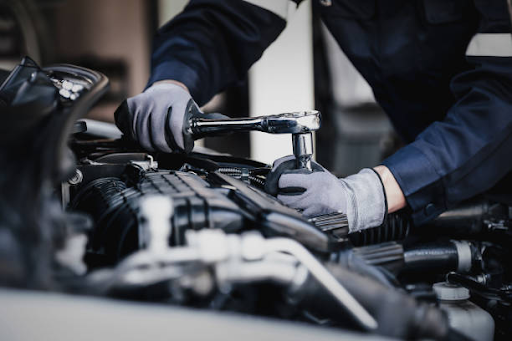Essential Vehicle Services: Keeping Your Car in Top Shape
Maintaining a vehicle is crucial for ensuring its longevity, safety, and performance. Regular services not only enhance the driving experience but also prevent costly repairs in the future. This article outlines essential vehicle services, including auto repair services and collision repair, and offers insights on how to keep your car in optimal condition.
Routine Maintenance: The Foundation of Vehicle Care
Routine maintenance is the cornerstone of vehicle care. Regular inspections and services help identify potential issues before they escalate into serious problems. Key aspects of routine maintenance include:
Oil Changes
One of the most important services is regular oil changes. Engine oil lubricates the moving parts of the engine, reducing friction and preventing overheating. Over time, oil breaks down and loses its effectiveness, which can lead to engine damage. Most manufacturers recommend changing the oil every 3,000 to 7,500 miles, depending on the type of oil used and driving conditions.
Tire Maintenance
Tires are critical for safety and performance. Regularly checking tire pressure, tread depth, and overall condition is essential. Under-inflated tires can lead to poor fuel efficiency, while worn-out tires increase the risk of blowouts and accidents. Routine tire rotations and alignments also ensure even wear and extend the lifespan of the tires.
Brake Inspections
Brakes are vital for safety. Regular inspections of brake pads, rotors, and fluid levels are essential to ensure they function effectively. Squeaking or grinding noises when braking indicate the need for immediate inspection. Replacing worn-out brake components promptly can prevent further damage and enhance safety.
Auto Repair Services: Addressing Common Issues
Despite routine maintenance, vehicles may still experience issues that require professional auto repair services. Common problems include:
Engine Diagnostics
If the check engine light illuminates, it’s crucial to seek professional diagnostics. This service identifies underlying issues, which can range from minor sensor problems to significant engine failures. Ignoring engine diagnostics can lead to severe performance issues and costly repairs down the line.
Transmission Services
The transmission is one of the most complex components of a vehicle. Regular checks of transmission fluid levels and quality are necessary. Signs of transmission problems include slipping gears, unusual noises, or fluid leaks. Addressing these issues early can save drivers from expensive transmission repairs.
Electrical System Repairs
Modern vehicles rely heavily on electrical systems for various functions, including starting the engine, controlling lights, and powering entertainment systems. Problems in the electrical system can manifest as flickering lights or a dead battery. Regular inspections and timely repairs of electrical components can prevent inconvenience and safety hazards.
Collision Repair: Restoring Vehicle Integrity
Accidents can happen to anyone, and when they do, collision repair becomes essential. Proper collision repair services restore a vehicle’s integrity and ensure it operates safely post-accident. Key aspects of collision repair include:
Frame Alignment
After an accident, it is crucial to assess the vehicle’s frame. Misalignment can affect handling and safety. Professional technicians use specialized equipment to realign the frame to its original specifications, ensuring the vehicle operates as intended.
Body Repair and Painting
Dents, scratches, and other cosmetic damages are common after collisions. Skilled technicians perform body repair to restore the vehicle’s appearance and functionality. This process often includes repainting, ensuring that the color matches the rest of the vehicle, thus preserving its aesthetic appeal.
Safety System Calibration
Modern vehicles are equipped with advanced safety systems, such as airbags and collision avoidance systems. After a collision, these systems may require recalibration to function correctly. Professional collision repair services ensure that all safety features are restored to their full operational capacity, providing peace of mind to the driver.
Additional Essential Services
In addition to the aforementioned services, several other essential vehicle services contribute to maintaining a car’s optimal condition:
Cooling System Services
The cooling system regulates engine temperature, preventing overheating. Regular checks of the coolant level and condition, as well as inspections of hoses and the radiator, are necessary to ensure the cooling system operates effectively.
Battery Maintenance
A well-functioning battery is crucial for starting the vehicle and powering electrical components. Routine checks of the battery’s charge and connections can prevent unexpected breakdowns. Most batteries last three to five years, so monitoring their condition is essential for reliability.
Wiper and Light Inspections
Visibility is key to safe driving. Regularly checking and replacing windshield wipers ensures clear visibility in adverse weather conditions. Additionally, inspecting headlights, taillights, and turn signals is crucial for safe driving, as malfunctioning lights can lead to accidents and traffic violations.
Conclusion
Keeping a vehicle in top shape requires commitment to regular maintenance and timely repairs. From routine oil changes to comprehensive collision repair, understanding and prioritizing essential vehicle services can significantly extend the life of a car and enhance safety on the road. By being proactive about vehicle care, drivers can enjoy a smoother, safer driving experience and avoid unexpected repair costs.







